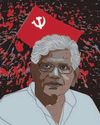India is writing a new rulebook for its Pakistan policy.

There has always been an element of shock and awe in Narendra Modi’s Pakistan policy. This flamboyant unconventionality makes a distinct break from the much more studied, quiet and conformist approach of his predecessor, Manmohan Singh. It also applies equally to both peace and conflict. What defines Modi’s Pakistan doctrine is the willingness to take a risk. The government gambled audaciously on better relations with Islamabad when the prime minister visited his counterpart in Lahore, without any announced scheduling of a bilateral meeting. Or when he invited Nawaz Sharif to be part of his swearing in. And also in the unusual choice of using a steel baron (Sajjan Jindal) as an informal channel of communication, bypassing the maze of mandarins in the foreign ministry.
Despite a hawkish mocking of Congress feebleness on Pakistan when Modi was an opposition leader and Gujarat chief minister, the truth is that Modi as prime minister has not always been ideologically hyper-nationalist on Pakistan. Instead, initially, he took unprecedented chances at building peace, including allowing a Pakistani team of investigators selective access to an Indian Air Force base in Pathankot as part of a terror attack probe. Like most prime ministers, Modi, too, has discovered that consistency is impossible in dealings with Pakistan. The constantly shifting power dynamics inside Pakistan, and the terrorism faucet that is turned on and off at will by Pakistan’s deep state, means that New Delhi has to be constantly ready to adapt. Modi has done that. The national security advisers have met on the quiet when necessary. In the past, the Jindal channel has allowed the two prime ministers to communicate without the encumbrance of summits and bilaterals and joint statements that are designed to fail.
This story is from the {{IssueName}} edition of {{MagazineName}}.
Start your 7-day Magzter GOLD free trial to access thousands of curated premium stories, and 9,000+ magazines and newspapers.
Already a subscriber ? Sign In
This story is from the {{IssueName}} edition of {{MagazineName}}.
Start your 7-day Magzter GOLD free trial to access thousands of curated premium stories, and 9,000+ magazines and newspapers.
Already a subscriber? Sign In

Themes Of Choice
As Savvy Investors Seek New Avenues, Thematic Mutual Funds Are Gaining Popularity

A golden girl
One of India's most formidable beauties passed away earlier this month. The odd thing is she would absolutely hate this obituary; she hated being written about and avoided publicity for all of her nine decades. Indira Aswani was 93 when she died. But anyone who encountered her, even briefly, was in such awe of her grace and poise, and one could not but remember her forever.

The interest in wine is growing delightfully in India
The renowned British wine writer and television presenter Jancis Robinson, 74, recently came to Delhi and Mumbai to reacquaint herself with India's wine industry. This was the Robinson's fourth visit to India; the last one was seven years ago. On this trip, Robinson and her husband, restaurateur Nicholas Lander, were hosted by the Taj Hotels and Sonal Holland, India's only Master of Wine.

United in the states
Indian-Americans coming together under the Democratic umbrella could get Harris over the line in key battlegrounds

COVER DRIVE
Usage-driven motor insurance policies offer several benefits

GDP as the only measure of progress is illogical
Dasho Karma Ura, one of the world's leading happiness experts, has guided Bhutan's unique gross national happiness (GNH) project. He uses empirical data to show that money cannot buy happiness in all circumstances, rather it is family and health that have the strongest positive effect on happiness. Excerpts from an interview:

India is not a controlling big brother
Prime Minister Tshering Tobgay considers India a benevolent elder sibling as the \"big brotherly attitude\" is happily missing from bilateral ties. He thinks the relationship shared by the two countries has become a model of friendship not just for the region, but for the entire world. \"India's attitude is definitely not of a big brother who is controlling and does not allow the little brother to blossom and grow,\" says Tobgay in an exclusive interview with THE WEEK.

Comrade with no foes
Lal Salaam, Comrade Yechury-you were quite a guy!

Pinning down saffron
In her first political bout, Vinesh Phogat rides on the anti-BJP sentiment across Haryana

MAKE IN MANIPUR
Home-made rockets and weapons from across the border are escalating the conflict